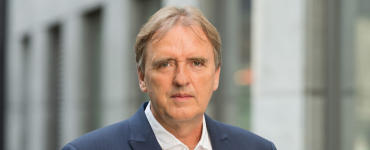Oliver Süme, eco Director of Policy and Law, on how German liability law inhibits the growth of an indispensable digital sector
You know the story – you’re sitting in an airport somewhere in Germany waiting for your plane, and you’d like to make use of the time to surf the Web, write some emails, or stream a video using Wi-Fi, but you can’t find a freely accessible Wi-Fi network. If this has happened to you, then you, like many others in Germany, can empathize with Neelie Kroes, former EU Commissioner for the Digital Agenda, who publically expressed her annoyance at the German Wi-Fi desert early last year, after trying in vain to find a Wi-Fi network at Düsseldorf Airport. And indeed, while open and free Wi-Fi networks are a matter of course in almost all public places in many other countries, there is a prevailing radio silence in Germany. And this, although every German citizen owns on average three Wi-Fi enabled devices.
The reason why there are almost no freely available public Wi-Fi hotspots in Germany can be found in the uncertain legal situation. Time and again, operators of public Wi-Fi networks, for example hotels and restaurants, have been sued for damages or given a warning for the legal violations of their customers, as a result of the third-party liability case law “Störerhaftung” – a law unique to Germany. The result: many restauranteurs and hotel managers simply do not even offer free Wi-Fi.
This legal uncertainty inhibits the development of the huge potential that freely available Wi-Fi networks could have for mobile communication in Germany. Wi-Fi is practically indispensable in today’s world – it has been, in the 15 years since it was developed, one of the ultimate success stories. At the end of 2013, there were for the first time more Wi-Fi enabled devices than people (7.5 billion units) world-wide – and the trend continues. In the year 2014 alone, more than 1.9 billion units were brought onto the market, and by the end of 2017, the world market will have exceeded 20 billion devices. In Germany, we can already count around three Wi-Fi enabled devices per person. Despite this, from the approximately one million publically accessible hotspots in Germany, a mere 15,000 are in fact open and freely accessible ones that can be used without registration or identification. This is the finding of an investigation into the status quo and the technical possibilities for public Wi-Fi in Germany, undertaken by eco – Association of the German Internet Industry.
An improvement in the legal certainty for Wi-Fi operators can provide an important signal for the increased use of wireless technologies like Wi-Fi for access to the Internet. Such technologies offer an enormous potential for the further development of innovative communication and information services and applications. From the social perspective, the adoption of Wi-Fi technologies, along with other innovative and mobile Internet access technologies such as hybrid models and combinations of a range of access technologies (Wi-Fi, UMTS/LTE, fixed-line), can also contribute to the nation-wide supply of broadband Internet, serving areas away from the major population centers. eco therefore welcomes the announcement from the German Federal Government of their desire to provide greater legal certainty for Wi-Fi operators. However, the equal treatment of Wi-Fi operators and access providers suggested in the coalition contract must not be associated with additional requirements or conditions. Otherwise, there will be the danger that the carefully balanced liability conditions in the Telemedia Act will be pulled out of balance.
Photo copyright Sean Pavone 2013



